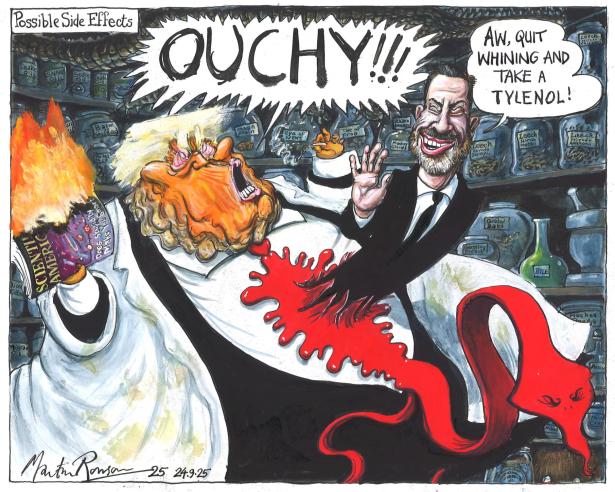- Defend the Movement and Our Media
- Why Community Radio Matters
- How AI is Transforming Journalism Education
- Kirk Assassination Sparks Security Surge at News Outlets
- Karen Attiah and Free Speech
- Mamdani’s Media Team
- Neon App Wants to Buy and Sell Your Data
- Kimmel Triumphant
- Saving Public Media
- Belva Davis 1932-2025
Defend the Movement and Our Media
By Negin Owliaei and Maya Schenwar
Truthout
It’s critical for the media to jump in and correct the record — it’s a core responsibility. But calling out hypocrisy and inaccuracy alone won’t save us. We must also shed light on the various mechanisms the administration and its allies have at their disposal to enforce its terrifying agenda, as well as the complicity of organizations willing to do their dirty work.
By Rima Dael
Radio World
Community radio’s public- and community-affairs shows prioritize community impact over journalism as product. Success is measured not by ratings or clicks, but by whether a story helps neighbors take action, inspires civic engagement or brings people together to solve shared challenges.
How AI is Transforming Journalism Education
By Gretel Kahn
Reuters Institute
Six professors from Cambodia, Peru, Serbia, Spain, the UK and the US take stock of the state of journalism education in a world in which AI can create pitches for students, do their research, and even write their news articles – all with a well-crafted prompt.
Kirk Assassination Sparks Security Surge at News Outlets
By Joel Simon
Columbia Journalism Review
It appears the media onslaught is upon us, especially when one takes into account the mounting legal and regulatory attacks. Individual reporters and news organizations in the United States need to take that seriously and to engage in the same kind of risk assessment that those in other backsliding democracies have managed to use effectively.
By Ken Makin
The Christian Science Monitor
Karen Attiah, an award-winning journalist and professor, was reportedly fired by The Washington Post for a series of posts on Bluesky in the aftermath of right-wing activist Charlie Kirk’s death. The Attiah firing, along with MSNBC’s dismissal of Matthew Dowd and the firing of two professors at Clemson University, is representative of the inconsistencies of punishments for free speech.
By Robin Andersen
CounterPunch
From the beginning, Mamdani was a longshot, labeled a “Muslim socialist” by Andrew Cuomo, but Zohran Mamdani’s momentum was building over social media and his creative, human-center media spoke a compelling language of compassion that was absolutely believable.
Neon App Wants to Buy and Sell Your Data
By Sarah Perez
TechCrunch
A new app offering to record your phone calls and pay you for the audio so it can sell the data to AI companies is, unbelievably, the No. 2 app in Apple’s U.S. App Store’s Social Networking section. The app, Neon Mobile, pitches itself as a moneymaking tool offering “hundreds or even thousands of dollars per year” for access to your audio conversations.
By Alex Weprin
The Hollywood Reporter
Sinclair and Nexstar ended their preemption of ABC’s Jimmy Kimmel Live! Sinclair said it made the decision after “thoughtful feedback from viewers, advertisers, and community leaders representing a wide range of perspectives.” While Sinclair appears to have been seeking notable concessions (including an ombudsman at ABC), a source says that no editorial or content concessions were made by Disney.
By Vince Stehle
Washington Monthly
The outlook for local public broadcasting has never seemed as dire as in the past few months. Support for nearly 1,500 public media stations—about 1,100 radio stations and 360 television stations—now comes mainly from individual donors, with foundations and corporations filling the balance.
By Scott Shafer
KQED
Belva Davis, an Emmy Award-winning journalist who broke the color barrier in Bay Area radio and television in the 1960s, died Wednesday. She was 92. Davis was the first Black woman to be hired as a television journalist on the West Coast when she took a position with KPIX-TV, the CBS affiliate in San Francisco, in 1966. She remained on the air for nearly five decades at KPIX, KRON and KQED.


Spread the word